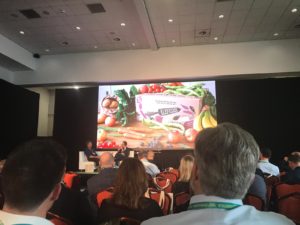News
In the ever-evolving landscape of modern workplaces, diversity and inclusivity have become not just buzzwords but fundamental principles. However, a recent survey conducted by the Recruitment & Employment Confederation (REC) has unveiled some rather concerning practices among UK employers when it comes to promoting diversity in recruitment.
Survey Snapshot:
So, what did the survey reveal? Well, it turns out that when it comes to promoting diversity in their job adverts and recruitment processes, many employers are still lagging behind. Here’s a quick rundown of the key findings:
Reviewing Job Advert Wording
It’s encouraging to see that 60% of the surveyed employers have taken a step in the right direction by reviewing the wording of their job adverts to make them more inclusive. This is an improvement from last year when only 54% had made such adjustments.
The Missing Diversity Statements
Here’s where things get a bit concerning. Nearly half, or 49%, of the respondents admitted not mentioning their interest in hiring diverse candidates in their job adverts. This omission can potentially deter diverse applicants from applying.
Name-Blind CVs – A Missed Opportunity
Name-blind CVs are a valuable tool for reducing unconscious bias during the selection process. Surprisingly, the survey found that 67% of employers do not use this practice. This is actually a step backwards from the previous year when the figure was 53%.
Diverse Interview Panels
Building diverse interview panels is vital for unbiased evaluations. However, the survey showed that 56% of employers still don’t have diverse interview panels, compared to 53% in the previous year.
Taking Action
Change should come not only from HR departments but also from company boards, executives, government bodies, and industry organizations.
The Path to Promoting Diversity
Recruitment isn’t just about finding the right fit for a job; it’s about building a team that represents the rich tapestry of society. Here are some practical steps that employers can take to promote diversity in recruitment:
- Inclusive Language: Craft job adverts with language that welcomes candidates from all walks of life. Use terminology that doesn’t exclude anyone.
- State Your Intentions: Be upfront about your organization’s commitment to diversity. Clearly, state in job adverts that you value diversity and actively encourage applications from all qualified candidates.
- Name-Blind Recruitment: Consider implementing name-blind CV practices during initial screenings to reduce unconscious bias.
- Diverse Interview Panels: Ensure that interview panels are diverse, representing various backgrounds and perspectives.
The findings of the REC survey serve as a reminder that while progress has been made, there’s still work to be done in promoting diversity in recruitment among UK employers. Embracing inclusivity and fairness in the hiring process isn’t just the right thing to do; it’s a way to tap into a wider talent pool and boost business performance. It’s crucial for organizations to take concrete actions to address these issues and move towards building a more equitable and diverse workforce. After all, diversity isn’t just a checkbox; it’s a pathway to innovation and success in the modern world of work.
 As a recruitment agency, we understand that interviews can be stressful and nerve-wracking. However, with the right preparation and approach, you can increase your chances of success and secure that dream job. In this blog article, we will provide you with some valuable tips and advice on how to improve your interview skills and impress potential employers.
As a recruitment agency, we understand that interviews can be stressful and nerve-wracking. However, with the right preparation and approach, you can increase your chances of success and secure that dream job. In this blog article, we will provide you with some valuable tips and advice on how to improve your interview skills and impress potential employers.
Research the Company and the Role
Before attending an interview, it is essential to research the company and the role you have applied for. Look at their website, social media accounts, and any other relevant information to get a better understanding of their values, mission, and goals. This information will help you tailor your answers to demonstrate your knowledge and understanding of the company and the role you are applying for.
Practice Common Interview Questions
Practice makes perfect. Spend some time reviewing common interview questions and practising answering them out loud. This exercise will help you to formulate your answers and build your confidence. Some common questions include:
- Tell me about yourself?
- Why are you interested in this role?
- What are your strengths and weaknesses?
- Where do you see yourself in five years?
Dress Appropriately
First impressions count, and what you wear to an interview is essential. Dress appropriately for the company culture and the role you are applying for. Aim to dress slightly smarter than the company dress code to show that you are taking the interview seriously.
Arrive on Time
Arriving late to an interview can significantly impact your chances of success. Plan your route in advance, leaving plenty of time for traffic or any unforeseen delays. Aim to arrive at least 10-15 minutes before your interview.
Body Language
Non-verbal communication is just as important as what you say during an interview. Maintain good eye contact, sit up straight, and use open body language. Avoid crossing your arms or legs as this can appear defensive or closed-off.
Ask Questions
An interview is a two-way process. It is an opportunity for you to learn more about the role and the company. Prepare some questions in advance to show that you are engaged and interested in the position. This approach will also help you to gain a better understanding of the company and the role.
Follow Up
After the interview, following up with a thank-you email or message is essential. This gesture demonstrates your interest in the role and appreciation for the interviewer’s time. Use this opportunity to reiterate your interest in the position and highlight any relevant skills or experiences that you may have missed during the interview.
In conclusion, interviews can be intimidating, but with the right preparation and approach, you can increase your chances of success. Remember to research the company and the role, practice common interview questions, dress appropriately, arrive on time, use open body language, ask questions, and follow up with a thank-you message.
Good luck!
A number of key industry speakers took to the stage on Tuesday 8th October at the Ricoh Arena for the FPJ live 2019 conference. So what were the main takeaways?
The B-word, Brexit of course was a major point for discussion. We were also privy to talks on Fresh Produce Brands; the methods and means of producing more fresh produce; sustainability; robotic innovation; health and fresh produce benefits; food waste and climate change.
Have a read below of our own round-ups of the talks that we attended.
Kantar
Joe Shaw Roberts, Insights Director for Kantar discussed sustainability in the produce sector and the ways in which meat consumption is reducing. 81% of those questioned as to why they moved towards a meat-free/reduced diet, cited health reasons as the main motive.
Joe went on to say that some produce sectors are growing whilst others are not. Products which are going in to plant based meat free meals are rising whilst many other fresh produce items such as broccoli and potatoes are not growing as fast as they usually accompany meat as part of an entire meal.
Trends are showing that sales of whole head produce are growing faster than pre-prepared produce with a rise in cooking from scratch due. This could be attributed to consumers wanting to reduce their packaging waste or simply because it is cheaper. Consumers are becoming more careful about what they buy and want more lbs for their pounds. That being said, further findings suggest that 44% of shoppers are now more concerned about selections on packaging too.
Jack Ward (British Growers Association) and Hayley Campbell Gibbons (ADHB).
In a really interesting talk and one which had everyone fully tuned into. The overarching feeling is that Brexit-systems are not in place and the government is not ready for the 31st of October when it is planned that the UK will leave the EU.
There simply are no answers at the moment as to what will happen. However, there is optimism that a deal will be in place and that no matter what, the flow of goods will continue. Clarity from the government is fundamental in trying to get this.
Any perceived threats and opportunities from outside of EU won’t happen day on day one of departure: the 1st November should be the same as 31st October, if not with some port border challenges.
Going forward, DEFRA budgets will also have a focus on supporting on Automation and crop protection.
The British Growers association remain ambitious despite the uncertainty. They have continued to grow and will continue to support the industry and growers.
Avnish Malde (Wealmoor)
Traditionally, Wealmoor had always been a very private, family-run business. Now though they are more in the public eye and are keen to project their values and ethos to the outside world.
They believe that the global supply chain is important as they have many relationships worldwide. There is much going on and they are trying to further integrate and invest in their farming operations in five countries.
Wealmoor is creating more brands, such as Herbfresh and Saxons Asparagus with the view to create a sense of provenance and owning stories about production. In time they think that they can get more brands out there on the global market, but they want to do so, cleverly, whereby the story is central to each.
They went on to say how sustainability is of paramount importance and they are investing in communities and growers. In the likes of Kenya, they plan to attack the issues of climate change head-on for a more promising future.
John Gray (Angus Soft Fruits)
The berry category is booming! There is huge reported growth which is down to three factors within their business:
- People
- Their strong supply chain
- Being adaptable
There are still opportunities for growth- the market has grown by just under 50% in 5 years. The 4 key berries are still growing but more steadily. John sees premium as a growth area.
Geographically, Peru is predicted to overtake Chile in terms of the volume of berries produced this year.
Most interestingly, the producers of British summer fruits, still are competitors but have opted to work together to drive growth.
In terms of the marketing of products, the trend is to continue with direct contact with consumer through campaigns.
How does geopolitics affect this sector? Gray suggested that it will be an impact no matter where anyone is in the UK, but suggests to look at it as an opportunity.
Mark Culley (Orchard Fruit Company).
They have seen success after the restructure and renaming to the Orchard Fruit Company. Their focus on an overall capacity allowed them to take cost out and remain competitive. The result: new customers, which are growing in their market space.
Under the previous name, Orchard World which is a company that has existed for 30 years and in that time frame, they have seen many changes.
The “pile it high, sell it cheap” mantra of Tesco is now a memory and in that bygone time, you used to have lots of customers, but now all seemed to have merged. Growers have grown bigger which has allowed retailers to go directly to them . The result: retail grower partnerships and investments.
Therefore it is not necessary for a ‘middle-man’ to connect retailers and growers – this relationship can be direct, hence lowering costs. There are now opportunities in the export market which are ripe for exploration and exports into Asia currently are growing considerably. Can you get better returns from export? Culley suggested that some of their best return is in the export market.
Longer-term visions for Orchard Fruit Company include continue to do what they are doing, whilst being innovative. And in terms of predictions, cherries will continue to grow significantly.

Tom Watson– (MP and Deputy Labour Leader)
Tom Watson was very apologetic for the current Brexit situation and how parliament is dealing with it. He suggested that crashing out of the EU would be a huge political failure and the House of Commons with its complexities makes it very difficult to siphon out plausible solutions. Watson acknowledged how serious the situation is. He went on to say that consumers are not aware of how delicate the situation is for food and in particular produce. His view is that everyone needs to give a little to have continuity.
He went on to say that he doesn’t think the UK will crash out on 31st of October, but he doesn’t know what the next steps are going to be.
Overall the deputy leader of the Labour Party, much like everyone else doesn’t know what’s going on!
Side note, he’s been on a health drive himself which has seen him lose 8 stone over the past few years! He puts it down to changing his eating habits to more fruit and veg!

VEGPOWER
As we all know such a great success story and gave an update on the impact they have had. Eat them to defeat them! campaign was a roaring success. They have compiled a full report which is coming out in October.
They have devised a 10-year mission, that every child, every single day, should be eating one more portion of veg. There is economic value in this plan: £90m to-fresh produce, potentially.
To push this plan through, they have got ITV back on board and added Sky and Channel 4 advertising.
To date, they have raised £850,000 in cash and they obtained £10m worth of free marketing for the campaign. But more needs to be done and that requires further funding.
Take a look here to find out more: https://vegpower.org.uk/

Hugh Pile (Blue Skies)
Blue Skies offer a unique offering in the industry, fresh-cut fruit produced at source in their factories. This leads to fresher product and creating jobs at source.
Pile went on to discuss the methods of recruiting more people into the sector and what moves are needed to get people to join our market. Pile suggested that dipping into brands helps to attract people as it gives a sense of pride and attracts talent in. The key talent market they want to focus on is ‘GenZennials’ who are the generation of people that want to change the world and have a purpose.

Mike Snell- (IPL)
It is an interesting time for retail as there is a concerted effort afoot to cut out the middle-man. But how has the model changed?
Snell looked back to 2004 when IPL was started and to be innovative. It worked well in a monopolistic market, where suppliers are not making enough money and it was very fragmented.
IPL buy all of Asda produce 1/3 pack 1/3 direct 1/3 sourced.IPL has grown outside of fresh successfully. The model expands cautiously and most appropriate to help Asda do what it wants to do.
Supermarkets have now been giving longer-term contracts. Snell is a big fan of this notion, in particular those which last 2-3years as it creates stronger partnerships. The downside of longer-term contacts is that the number of people you can work with is reduced, taking massive business off some suppliers.
Snell was asked, “Would you consider acquiring suppliers?” His answer was, yes, but they would only buy if it added value. Not just to get bigger.
Price and quality remain the number one priority of consumers and provenance has remained further down the list of what consumers really want.
Snell went on to say that we should always look to buy products as close to the selling point.
Sainsbury’s Asda merger: how much of a blow to the Asda side? Snell said that they hadn’t done a great deal of planning for the future but they have improved processes and efficiencies. In effect they trained for a race that they will never run. CMA reasoning behind the block was cost would be higher for consumer. Snell went on to say that he couldn’t figure out why that was a valid reason though and felt it would bring better pricing for customers.
On the topic of Brexit, IPL has prepared as much as they can. He predicts that the ports will cause problems, but those problems are all dependent on what type of Brexit occurs and what shortages happen off the back of whichever Brexit option materialises. What does a no-deal Brexit mean? As IPL is a budget retailer, the best value on offer has to remain. Furthermore, the reduction in plastics needs to be a consideration as it is the biggest single issue in Produce.
Snell says that he views the wider retail market as super competitive. Consumers today have the best options available, ever. The retail winner will be the one who provides the best experience not just price and going forward he felt that shopping in ‘bricks and mortar’ stores will continue but in combination with more online activity.

Guy Singh Watson (Riverford Organics)
This talk was a great insight into his life and how he has grown Riverford Organics.
Employee ownership (which stands at 74%) is a key factor in the lifeblood of the organisation as they have a meaningful say over their future.
A key point he made was that we need to make consumers understand the value of produce, seasonality etc. We should be driving this and not just trying to make money out of it.
Vernon Mascarenhas (Natures Choice)
Mascarenhas used this platform to talk about their industrial warehouses and vertical farming.
Such methods are affordable when products are imported as the product cost comes down.
Vertical farming is attracting interest from buyers and consumers and it is perceived that products grown in this way will be available from the end of 2020.
Chris Hutchinson (Spitalfield Markets)
Big changes are afoot for Spitalfield. Land near Dagenham has been purchased which will be used to become a site for selling meat, fish, fruit and veg. Something the location may be a worry due to logistical issues, but Hutchinson is hugely optimistic for such changes.

Simon Martin and Pierre Koffmanns (Koffmanns/Food Heroes)
Koffmann was established due to a gap in the market. Chefs wanted to have a hold on the conditioning, quality and taste of produce they were using.
Koffmann has a pipeline of new brands coming to the market in the next six months, including, sauces.
In terms of next steps for the business, it is not their intention to look at retail. However, they have had conversations with various retailers as they want a point of difference.
Sally Orange (Sally Orange Charity)
This was a great talk, discussing fruit costumes running marathons and the mental health benefits which can be obtained from eating fresh produce.
Minette Batters (NFU)
Batters suggested that the conflicting messages, consisting of lightweight conversations with no detail, have been offered by the Government about Brexit, which is in its purest form the most extraordinary time of change. If we do leave without a deal the only three product areas without tariff protections are cereals and grains, eggs and horticulture.
The talk then shifted in the direction of labour for farming and it was suggested that the government is not doing enough to meet the need. At present, workers (particularly those from other European nations) are being affected by the devaluation of the currency and also feel less welcome. Such ideas mean that immigration is at the front of the Brexit debate when the focus should be elsewhere because seasonal workers are not an immigration issue. The bulk of people understand this. But now, it has become political and the House of Commons out of touch with this.
However, there is a massive possibility for fresh produce revolution as Brexit has opened the eyes of industry members. They now have a closer connection with what people are eating and Brexit will bring about collective support for buying and sales across the industry.
Trade Deals: the battleground of Brexit. Most countries do not have the same legislation as the UK, that is obvious. Agriculture is a huge part of the US trade deal. However, the EU could put the UK on the waiting list for FTA.
Batters went on to say that aside from Brexit, there is a massive fruit and veg drive to help bolster good health practises. This is coupled with an Environmental Agenda, particularly with regards to climate change where the net change is hoped to become fully sustainable.
Plants and growing more of them is an effective method of CO2 removal. Going forward this relates to people wanting to know what their carbon footprint is and how they can take ownership of it to counteract any perpetuated negative impacts.
Finally, Batters talked about Women in Farming and how there is a drive to encourage more women to get involved in the industry. Batters suggested that more universities are seeing an influx in woman enrolling on courses related to the industry so a follow-through will hopefully occur.
A great event once again from the team at The Fresh Produce Journal, we look forward to next year!
A counter-offer is an interesting conundrum; they usually occur as soon as the resignation process starts. They are tricky to handle and work through and in instances, we have even seen counter-offer’s occur after a candidate has left and started with a new employer.
 It is important for an employer to really think carefully when making the counter-offer and for an employee to fully understand and consider when they receive one.
It is important for an employer to really think carefully when making the counter-offer and for an employee to fully understand and consider when they receive one.
One thing is for sure we have definitely seen an increase in counter-offers in the last 18 months across the FMCG sector; we believe that there are a variety of factors for this:
- Unemployment rates in salaried manufacturing and exec roles are at the lowest they have been since the early 1970’s.
- Skills shortages in many positions.
- Economic vulnerability.
- Employers job roles and responsibilities increasing.
- Understanding the real costs associated with reemploying.
- Vulnerability of customer business.
The list could go on.…
From the Employer’s Perspective:
The first question for you as the employer is the need to really understand the motivating factors for resignation, and I’ll let you into a secret: regularly what they tell you won’t be the real reason!
Throwing a counter-offer at an employee when the actual reason is they want to finish early on a Friday isn’t going to be effective. Yes, it might sweeten the deal, but it will come around in the future and the counter-offer you are giving is simply papering over the cracks.
Why are you counter-offering someone who has decided their future is away from your organisation? They clearly haven’t taken the decision lightly! It takes a lot to hand that envelope over and so are you getting a committed person for the future or is it just going to be hassle recruiting a replacement? Better the devil you know than the devil you don’t, maybe?
Think about it carefully. Is this a great opportunity to get some fresh blood into the business, new ways of thinking and experience? Yes, you are going to have to integrate and train a new team member, and possibly pay a fee for the privilege, but you are getting an employee who has made the decision to join you, not join someone else!
And going back to the anecdote about a candidate who left and re-joined a business 3-4 weeks after starting their new role, by accepting a counter-offer: they then left their original employer within three months of re-starting! Why? Because the employee realised actually the counter-offer was the wrong move and it didn’t work for all parties.
The Employee’s viewpoint:
If you are an employee who has been given a counter offer, you need to be clear in your own mind why you started searching for a new role in the first place. If it was down to money, why didn’t you ask for a pay rise? And if you did ask, but the request was rejected, why did your employer change their mind after you resigned? Why are you suddenly worth £5000 more, than you were before you resigned?
There are differing circumstances every time; we are not saying that accepting a counter-offer is wrong, nor is deciding to reject a counter-offer the correct decision either, but it is so important to be judicious when coming to a final decision.
Regularly your recruiter is in the best position to give you advice, and if you think that a recruiter is only in it for themselves and their own self-interest, guess what you are working with the wrong recruiter!
If they state all the facts, lay it out and let you make the decision, and most importantly, inform you impartially, they are doing their job. Inevitably, a recruiter wants to place a candidate in a role which will offer success and longevity: not a short-term placement.
Talk openly with your recruiter: I can cite many examples where our team have picked up a call and talked things through with the candidate and their decision makes sense; sometimes they may disagree because the facts and motivators don’t point to the right decision for them. However, those are the candidates you usually find back on the market again in a matter of months.
Counter-offers, they are all circumstantial:
At face value, a counter-offer may seem like a very flattering proposition. Is the employer saying that they would be unable to cope without you, or are they of the opinion that it will save them a lot of time, money and effort to stick with the status quo? They’ll sweeten you up with a cursory pay rise, perhaps the offer of working from home one day a week and from their side, the problem is solved. But the cracks have merely been papered over, not filled in and fixed.
Showing your desire to move on will mark your card potentially. If you have been tempted by an employer who offers what you perceive to be greener grass, your employer may end up simply sitting in a state of flux, waiting for you to hand over another resignation letter. Trust may be the main casualty and the paper that covered the initial cracks has now been ripped to shreds.
Very often we see those that accept a counter-offer, to go on and leave their employer a short while later but it’s hard to put a factual figure on that. The extra pay rise soon becomes the norm and the employer hasn’t really changed! We have seen it time and time again, that within a short period of accepting a counter-offer, the candidate starts job hunting again: motivations for wanting to leave have not just remained the same, but the reasons have in fact grown. Doing this can give you a negative reputation of being indecisive and if the counter-offer is just a pay rise, then the employer you turned down could feel cheated. Money is important; however your career is also strongly about personal and professional growth and if your paths cross in the future, you could be marked as just someone that is ‘chasing the money’.
That being said, if you are summoned into a meeting room after handing in your notice and your current employer discusses how your position is vital to future growth and that you are going to be part of that future, such a proposition will be very tempting. If they are tangible, then it’s only natural that you should consider what they are offering. By staying you could be a lot more engaged and motivated: it’s the fresh start you wanted, but instead of new surroundings, it’s a new beginning in a place which is familiar.
Ultimately, it is important that you do not commit immediately: go away, take your time and weigh up ALL of the options. The ball is firmly in your court, so don’t immediately decide, but take time to reflect.
At such a juncture, going back to your recruiter is vital to get their sway on it. Furthermore, they should work on tactics and a strategy that works for you to get the best package.
 The Final Decision:
The Final Decision:
When crunch times arrives and you have to decide to stay or go, and your decision has been made all the more difficult with a counter-offer, it is likely that you will feel very confused. Have you made the right choice?
Right at the beginning of deciding to hand in your notice, you made the bold step to leave a company and go through the motions of finding a new role because your current employment position did not provide you with fulfilment. Why, therefore, would you really want to go back on that choice if you know deep down, that staying put will be temporary and in the long run futile?
To quote Albert Einstein, “Insanity is doing the same thing over and over again and expecting different results.” I am by no means saying that accepting a counter-offer is an insane move, but if you stick with something that is not delivering for you, ultimately, this will remain a constant.
Moving into relatively unknown territory in a new role can be an intimidating prospect, but so often taking a leap of faith into a new venture will deliver a great many rewards.
The weather was kind to us on Friday 21st June 2019 for our annual golf day held at The Luffenham Heath Golf Club. With the weather being more autumnal over the last few weeks, there was definitely some worry in the run-up that we may have to postpone. Luck was on our side however and the sun did appear.
A total of nine teams took part, made up of some of our valued clients from the Food Manufacturing, Fresh Produce and Horticulture sectors. The golf was mixed at best, with some fantastic scores and some awful ones, but mainly great fun was had by all.
Recruitment Director, Jason Kilbride said:
“The annual golf day is always a day in the calendar which we look forward to. It’s a great opportunity to spend time with clients who have supported us and continue to work with us throughout the years. Luffenham Heath is a beautiful setting and a challenging day.”
We would like to say a huge thank you to all that attended and in doing so, helped to raise some money for our charity. Special thanks to our Office Manager, Natalie Pask who put in so much effort organising the day, which ran very smoothly.
See you again next year!
RESULTS:
1st Prize – Gareth Silverwood – Munoz – 40 points
2nd Prize – Julian Wright – Ripenow – 34 points
3rd Prize – Mike Harpham – Consultant – 34 points
Ladies Prize – Rachel Gedney – TH Clements
Nearest The Pin – Mike Harpham – Consultant
Longest Drive – Louis Meryon – Addo
Team Prize – Gareth Silverwood – Munoz
Richard Dyde – Vitaal
Ian Ball – Total Produce
Mark Player – Munoz
Wooden Spoon – Leigh Jones – Total Produce Food Service
Bandit – Gareth Silverwood (40 points off 28 Handicap!!)
Cutting costs and improving overall efficiencies are some of the biggest priorities for the Operations and Supply Chain professionals we at Henderson Brown work with. New technological advances have transformed the way that food manufacturing businesses operate either reducing costs or simply increasing information flow.
2019 is set to present several interesting trends which Henderson Brown feels are significant and of real interest; Artificial Intelligence (A.I.) and cloud-based software systems are transforming the way that businesses interact with one another. FuturMaster, the systems provider which works with the likes of Heineken and PepsiCo have highlighted the value in this. In an interview with the website, Food Manufacture, earlier in March 2019, FuturMaster sales manager Martin Sewell said
“More data is becoming accessible and senior management are beginning to see the value of it much more than they have done.”
Sewell explained that software firms which focus on supply chain are now having to adjust themselves in line with this. It is important that companies which produce food and drink are proficient in the ability to capture all the additional data they are generating. Moving on from that, they need to be able to analyse it appropriately so that they can redeem the efficiencies they are searching for.
The supply chain for the food and beverage manufacturing sector is highly complex. The ability to drill down into the consumer demand data and how this affects a business (and their competition) is of huge competitive importance. Understanding this data and the clear insight that it gives will lead to making well thought out predictions and should direct a firm to provide an almost seamless delivery service across multiple sales channels. Even online sales channels which can be difficult to predict are becoming easier due to the availability of data instantly.
The market is now seeing more reliance and requirement for cloud-based supply chain software which is then being used in conjunction with A.I. As more and more data is gathered then stored, A.I. works to analyse the trends and aid with more efficient planning – A.I. performs the tasks more quickly and efficiently than a human brain too, thus cutting manpower costs and the removal of potential human error. The result should enable for forecasts to be made more precisely. Furthermore, the possibilities of supermarket shelves becoming out-stocked or overstocked would be reduced with the subsequent reduction in stock wastage.
Improvements to overall supply-chain efficacy and finances all round!
At Henderson Brown, we have listened to how our clients are changing and about how the methods they have implemented to achieve these changes have impacted their business. For example using GPS tracking connected to smart sensors, which results in the improved accuracy of the product’s location in the supply chain. Companies can acquire assurances about the condition of goods and gauge what quantities are or are not needed and where. Every product can pretty much be tracked to the person who packed it, the source and the consumer who bought it.
Of the various roles we have been asked to recruit for, the competencies of future employees now extend to understanding and appreciating the importance of data and how it is used. Being data savvy with an analytical mind is a key requirement.
The need to produce quality products on time, in full and at the lowest cost possible whilst also minimizing the amount of waste made increases continually as margins come under more pressure. There is, therefore, a constant demand for employees to continuously improve and drive out costs. Going further, these employees need to ensure that the supply chain runs as smoothly as possible so that a business matches the demands of their customer.
Will Malcolm and Joe Hill both work in the Operations and Production division at Henderson Brown and of these job requirements they say:
“We are speaking with many more candidates that are excited at the way they are having to integrate new systems into their roles. They see the benefits and the opportunities on offer to themselves and the businesses they want to work for. On top of this, our clients want to employ people that appreciate how the various advances now present a greater understanding of the consumer’s needs and relish the opportunity to expand their technological know-how.”
What other technological advances do you see as being of influence in 2019?
Check out the latest live Operations and Production roles, here.
Henderson Brown’s inaugural “Cheltenham Gold Cup” day was held on Friday 15th March at the Great Northern Hotel in the centre of Peterborough.
The live races from Cheltenham were projected to the guests on a big screen, with a licensed bookmaker to take bets and industry expert to talk through the race card.
This invite-only event was a thank you to our clients and business friends for all their support and partnership throughout the year.
Martin Brown, Managing Director of Henderson Brown said:
“The whole day went brilliantly. It was superb to see many of the clients’ that we feel privileged to work with year on year at this event. We have already started planning for next year and it was really well received. With some big outside winners, some of our guests went home extremely happy!!”
The entire team from Henderson Brown would like to say a very big thank you to all of those that joined them for this event. Additionally, they would like to thank the staff at the Great Northern Hotel for providing such excellent hospitality.
HB Recruitment Director, Jason Kilbride, was asked by Your Food Job to carry out a 60-second interview to get to know him a little better.
How long have you worked in food recruitment?
I have worked in the sector for 6 ½ years.
What do you love most about working in food recruitment?
It’s such a diverse and intriguing sector to be a part of, making key introductions to food businesses and seeing how we help shape their future. It’s great to be able to understand the journey right through from product innovation to the consumer purchase. It’s a sector I have grown such a passion towards and as with everyone here we have such strong links within it.
What’s the best piece of advice you could give to a candidate?
Build relationships with a recruiter you trust, they will then really understand what you are looking for or if your ideal career move came up even if you are only passively looking. We are in tune with the market place and can offer great advice, it’s good to have someone in your corner that will even know about the opportunities that may not be out in the mainstream but could be your perfect role. But pick up the phone and call, don’t just send in a CV!
What’s the best piece of advice you could give to an employer?
Make sure you work with a recruiter who really wants understands your business and is selling the opportunity and your brand in the correct way. It’s a reflection on your culture and the way you operate, recruiting through a consultancy is a great way to promote your business, its culture and its prospects. At the end of the day they are an extension of you and your voice in the market place, make sure it’s the correct message sent out.
What is your favourite food?
Has to be Tapas, a little bit of everything!
Tell us one thing about you that your staff don’t know.
A few of them may have uncovered this one, but I have actually represented England at Futsal (Small sided football) and have 41 caps for my country playing all over the world. If I hadn’t already told them they will definitely know about it now!
Brexit: a conundrum of magnitude. Will it happen? Won’t it happen and if it happens, will it go through with or without a deal? With uncertainty looming most ominously, we can only speculate just what the impacts will be.
It is suggested that the UK is only 60% self-sufficient when it comes to food, according to government figures, and 70% of its food imports come from the EU – but then we have become a nation addicted to avocadoes and year-round iceberg lettuce, will we starve as a nation? Most certainly not but availability and choice will be restricted. The departure with or without an agreement will have upheaval on what we see on our shelves after the day that Brexit does arrive.
Are we going to face situations where food is in short supply? Predictions suggest that within days of the UK’s European Union departure, shortages could occur. But what we do know is that necessity is the mother of all invention and we will still be eating – what are consuming though, might be different and might cost more for a while. However, as a nation it is likely we will not starve.
Many experts however across the British food industry, a great number of whom are producers, farmers and retailers which the British public depend on, are genuinely very nervous. No one doubts that there will be potential disruption to the food supply chain which could result in unharvested produce and empty shelves in the supermarkets. However, the supply chains from Europe have products to sell, and they simply can’t shift it anywhere else. Conversely the British consumer wants to buy them.
So where will this lead us? The truth is no one has a clue!
Towards the end of January, CEO of the UK trade body, Food and Drink Federation, Ian Wright said that a no deal Brexit would be “potentially catastrophic” and the Prime Minister was not giving adequate attention to the concerns held by the food industry. Such apprehensions have been heightened since the deal on the table was thrown out of parliament in January. Speaking with Business Insider earlier in February, Wright said:
“We keep telling them [the government] that it [a no-deal Brexit] is potentially catastrophic but it is difficult to know just how much they’re listening.”
In an effort to mitigate a disastrous fallout, various food manufacturers have started to stockpile ingredients and finished products out of fear of supply shortages. CEO Siobhan Talbot of Irish dairy and sports nutrition company, Glanbia, spoke with The Irish Times and told the newspaper:
“We have stocks in the UK, more than we would normally have. We are very much planning for a no-deal at this stage, we have all the supply chain alternatives, all those pieces that one would expect but that does not mean that that would be easy and that does not mean that that wouldn’t be without its implications.”
Of course, Brexit isn’t just going to impact on food production; anything linked to the industry will be at the mercy of the subsequent halo effect. Most of the food safety laws in the UK stem from legislation passed by the EU. This includes the legal necessity for food businesses to use food safety management systems which are based on the codes of HACCP for food safety management. Questions have arisen as to whether or not such legislation will be retained. It is unlikely to change as the approach is a global one and importantly, The World Health Organisation (WHO) established international food standards which act as a legislative base for countries throughout the world. To throw out the rule book would be pure madness then. It is likely that existing food safety legislation will simply be ‘cut and pasted’ and then restamped with a Union Jack instead of a European flag.
The legislative framework is not nonsense, however, and they provide a solid foundation for food safety to operate. It is believed therefore that if and when Brexit does happen, a review of the legislation will inevitably transpire, but it is unlikely that much in term of amendments would need to follow. If the requirements are unnecessarily cumbersome, then change may happen, and this could be for the better.
Labelling and packaging of goods which are intended for export from the UK into the EU will need to adhere to and comply with EU law. As such making these changes for the sake of it, would not be prudent and could be harmful. The biggest predicted changes are to food safety however; the number of enforcements visits may be decreased to ease the legislative weight.
Future labour availability is probably going to be one of the biggest impacts on British Food and Fresh Produce from leaving the EU. We have as a nation had a ‘cheap labour tap’ which has been flowing since 2004. Immigration, one of the bugbears of many who voted out, has fed the British economy with abundant, motivated and very often well trained and educated labour which has worked in the food factories and packhouses as well as in the fields picking fresh produce. This tap has effectively been turned off and this will have consequences for the industry. Stories of produce rotting in the fields are rare and are probably more down to flushes causing gluts, or over planting than pure labour availability. However the indigenous British population has historically been reluctant to pick fresh produce from the fields, so will this change?
Most certainly not, so how will it get picked? The answer is going to be in the short term enhanced labour rates to attract people to undertake these tasks and in the longer term, automation. But, despite the press releases from the universities working on these projects, realistically these are 3-5 years away. The cost of production and subsequently the prices of fresh fruit and vegetables will increase. Therefore it will be interesting to see whether the retailers will absorb these costs or pass them on.
Is it coincidental that we have seen wage growth creep above inflation for the first time in over a year and we are seeing levels of unemployment fall to the lowest since the mid-1970’s? As the labour tap has turned off, are we seeing the forces of restricted labour supply and continued demand force up wages? Let’s see.
 Logistically, getting food into and out of the UK once Brexit has occurred is likely to change. Some have made a guesstimate that if an additional two minutes are required to check trucks and lorries, this could generate a 17-mile tail-back within a single day. The Dutch fruit and vegetable exporters are working on a lorry passport scheme which is designed to reduce these potential problems by creating a fast track for their goods. They want to sell it and the consumers will want to buy it – will market forces inevitably not come in to play?
Logistically, getting food into and out of the UK once Brexit has occurred is likely to change. Some have made a guesstimate that if an additional two minutes are required to check trucks and lorries, this could generate a 17-mile tail-back within a single day. The Dutch fruit and vegetable exporters are working on a lorry passport scheme which is designed to reduce these potential problems by creating a fast track for their goods. They want to sell it and the consumers will want to buy it – will market forces inevitably not come in to play?
Some businesses who we speak to have taken on a more stoic standpoint and are getting on with it, rather than waiting to see what happens. Some of the shrewder operators have been getting into the swing of things with new product development and focussing on creating new or alternative items which can be sourced locally and do not come directly from the continent.
From an environmental perspective, the reduction in food miles could be a welcome result from the exit process. Several of the more innovative businesses have investigated specifically how food mileage can be shrunk or negated and developed new initiatives that specifically tackle this issue. One good example is growing food aquaponically (a fusion of aquaculture and hydroponics). If this approach is applied to growing salad items, it is considered that food miles can be cut down to almost zero. This could remove problems such as those faced in Spain in early 2017 due to unseasonably cold weather that had the knock-on effect of a salad shortage in the UK. Shrinking the number of miles food must travel or negating the carbon footprint associated with growing and transporting produce, at least, will have a positive effect on the environment.
New technology is not always the answer though, but adaptations to ones already in existence or indeed considering the opportunities of looking at readily available alternatives. With regards to market supply, it would be necessary to review supply bases to ensure that the best value is on offer. Understanding where the potential kinks in the chain are (regardless of a crisis, if that is indeed what Brexit is), is necessary to prevent a weakness causing a snowball effect. The result of carrying out such reviews, therefore, should reveal what unnecessary efforts can be removed with the result being, improved efficacy of the supply chain.
On the whole, the outlook of what the impacts of Brexit will be on the food industry are in the short term more negative than positive. But – we simply don’t know what will happen – if anything will change at all! The uncertainty is definitely affecting business confidence as we have clients who have delayed investment projects until April and have held back on some senior appointments until there is more clarity.
But until B-Day arrives, and that specified date is still up in the air, no one can say with absolute confidence just want the future holds. Until then, is it business as usual? To keep the nation fed, it will have to be.

















